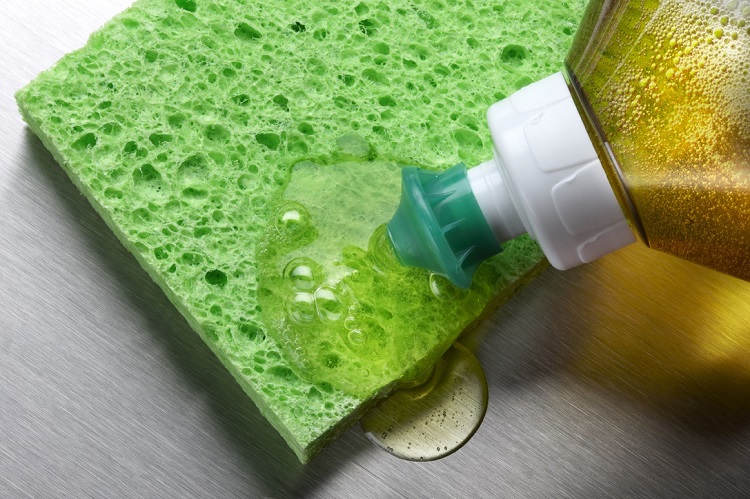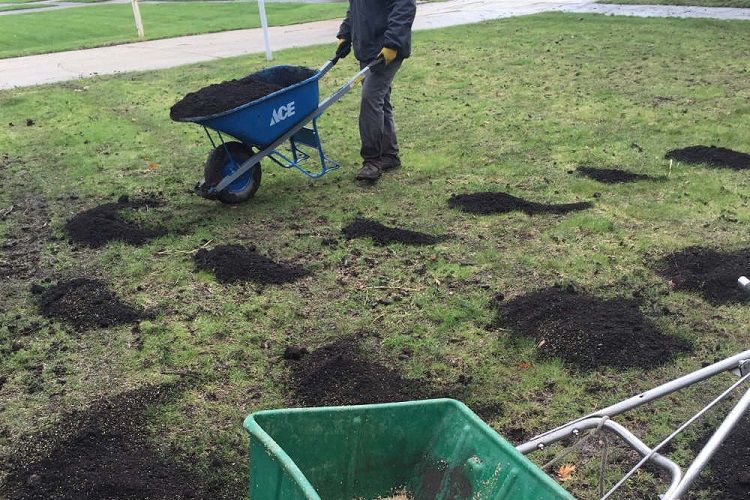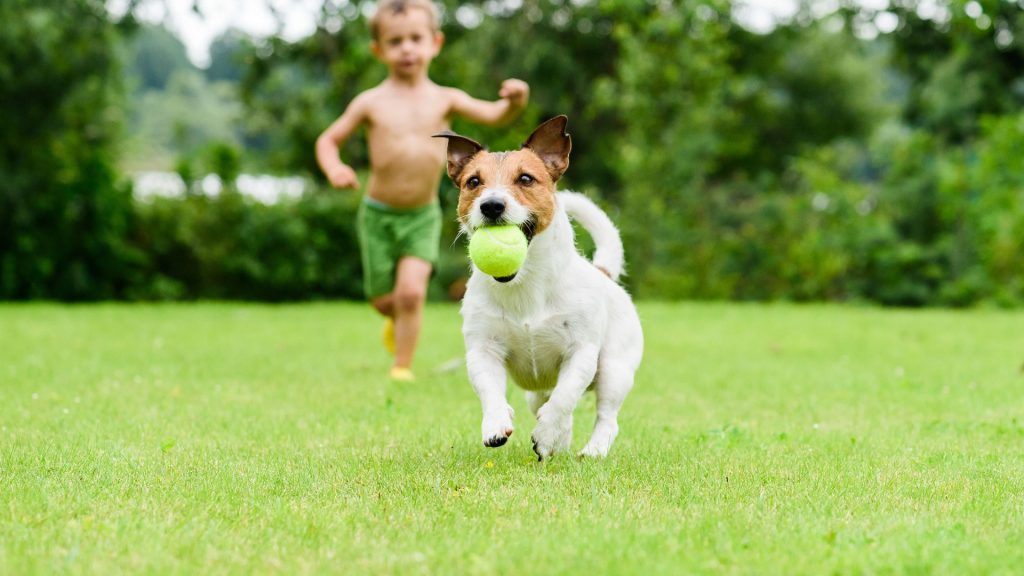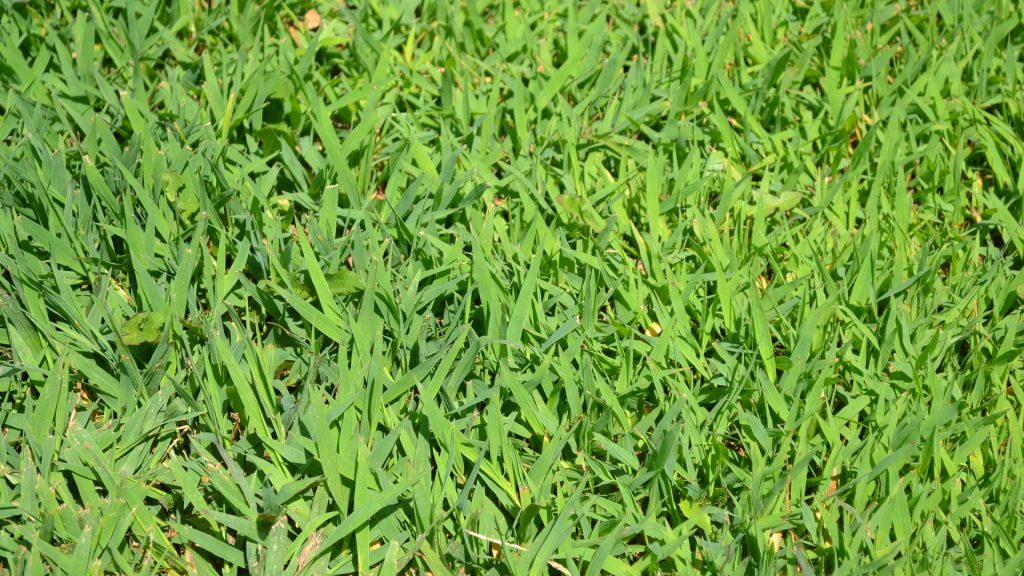
Does Dish Soap Kill Weeds?
If you’ve got a weed or pest problem in your garden, you’ve probably had someone suggest a natural herbicide concoction featuring dish soap before.
While it can be effective at treating these issues, it usually works best when combined with other household products.
Does dish soap kill weeds? On its own, dish soap likely won’t be enough to kill weeds in your garden, but it can help. Mixing dish soap with other products like salt and vinegar can create an effective homemade herbicide, and it also works against pests.
Before you put your kitchen soap to good use, check out this short guide to see how it should be used in the garden. We’ll look at why it works, how to make the most of it, and whether it’ll kill your grass and other plants if you decide to use it.
What is Dish Soap Made Of?

Standard household dish soap usually features ingredients like water, sodium citrate, lauryl glycoside, vinegar, citric acid, and glycerin.
However, different formulas and brands contain other ingredients, so you’ll need to check the label if you’re looking for something specific.
The term dish soap is not to be confused with detergents, which can be slightly different. Dish soap is usually made with acids from animal fat and natural ingredients like coconut oil or palm oil.
Detergents feature more synthetic ingredients and can be harsher on your skin and in the garden.
Do Dish Soap Kill Weeds?

Dish soap is commonly mentioned in discussions about natural weed killers, but it’s usually not enough to do the job on its own.
People find that mixing dish soap with other known household herbicides, like vinegar and salt, is the best approach for killing weeds naturally.
The purpose of adding dish soap to these weed-killing combinations is twofold.
First, they help the other active ingredient to adhere to the weed’s leaves better, and secondly, they break down the outer cuticle of the plant which means the tougher ingredient can get in and work more effectively.
Will Dish Soap Kill My Grass?

The good news for careful gardeners is that dish soap alone won’t do any damage to your plants or grass. If you happen to get some on them, the harm will be minimal, unless of course it’s mixed with another agent like vinegar.
It’s important to note that not all dish soaps are created equally and some may contain harsh ingredients that can damage the grass.
If you notice sodium lauryl sulfate on the ingredient list or other harsh chemicals that you’re unsure about, avoid this soap brand.
When Should You Use Dish Soap in the Garden?

Your bottle of kitchen dish soap isn’t just good at cleaning plates as there are plenty of ways you can use it in the garden as well. Check out these tips for how to put your dishwashing soap to work for your plants and grass:
- To treat pests: There are loads of bug species that hate being sprayed with dish soap as it kills them and makes it harder for them to grip onto the plant. A simple mixture of soap and water can be sprayed on aphids, thrips, mites, and whiteflies to get rid of them for good.
- To mix with other weed killers: If you want to treat weeds, creating a DIY herbicide using vinegar, water, and dish soap is the easiest way. The soap will make the vinegar more effective and vice versa so get creative making up a solution.
- Timing is everything: Using household products like dish soap and vinegar needs to be done at the right time for maximum results. If you’re using it to treat insects on plants, make sure you can see the pests and spray it directly on them then.
- Be cautious with plants: Although gentle, there are still some types of dish soap that will damage plants. Apply a small amount of dish soap to a leave of a plant to see what the effect is before treating a larger part.
Using the Power of Soap
If you look around your kitchen, you’ll find a huge selection of products that are ideal for gardening, with dish soap being one of them.
As long as you know how to put it to good use, your average bottle of dishwashing detergent can be a major part of your gardening routine, and one that’s safe for the planet and your family.
Related Questions
Dishwashing detergent might not be the first thing you think of when coming up with a list of gardening supplies, but it sure can be effective.
If you want to know what other household items you can use for lawn maintenance, check out these FAQs for some inspiration.
Can I Use Newspaper in the Garden?
Newspaper is a safe household material that can be used in gardening, usually as a weed barrier, and it will degrade on its own eventually.
You can lay down sheets of newspaper in garden beds or on the lawn to cover a weed growth and prevent it from spreading, then leave it there for a few months to naturally decompose.
Can I Throw Compost on My Lawn?

If you have a compost heap and home and want to know how to use it, throwing heaps of it onto your lawn and then raking them in is one of the best ways.
This method of top dressing delivers a direct source of nutrients, including a lot of nitrogen, to the grass and it can help with growth.
Does Baking Soda Kill Weeds?
Baking soda, or sodium bicarbonate, contains salt which can dehydrate the leaves of weeds when applied to them.
However, you must be mindful of the baking soda coming into contact with other plants in your garden, including grass, as it will be just as effective as dehydrating and killing them as well.
Resources:

